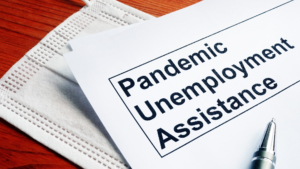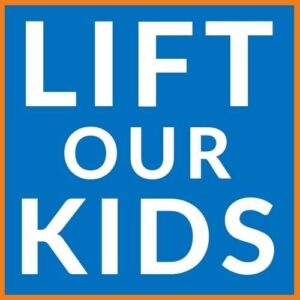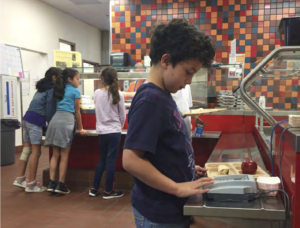MLRI Signs Race Equity Statement on House ARPA Plan
The Massachusetts Law Reform Institute has joined a number of organizations in signing a statement regarding the plan by the Massachusetts House of Representative to distribute American Rescue Plan Act (ARPA) funds in relation to promoting racial equity in the Commonwealth. Below, please find the text of the statement, which can also be found here.
Statement on House ARPA Plan
Federal pandemic relief funds are an unprecedented opportunity for Massachusetts. This is the time to address structural barriers and oppression laid bare by the pandemic. This is the time to right some wrongs by investing in our Black, Latino, Asian, and Native American communities who have been hit hardest by the pandemic and who have not historically received equitable funding. Our leaders must rise to this challenge; while the House debate led to some notable wins in these areas, there’s still a lot of work needed to meet the moment.
House HWM Legislation a Good Start but Legislature Should Address Opportunities

On Monday, October 25, the Commonwealth’s House Ways and Means (HWM) Committee released a bill that details how the state will spend the billions of dollars that Massachusetts received through the American Rescue Plan Act (ARPA). In total, the Commonwealth received $8.7 billion from the federal government, with $5.3 billion allocated to the state and $3.4 billion designated for municipalities.
Unfortunately, some key priorities that will help the most vulnerable of the state’s residents — those who this funding is supposed to help — were left out of the HWM bill. The bill includes no support for Right to Counsel, despite the fact that the COVID Eviction Legal Help Program (CELHP) has been successful in preventing evictions. There is also no increase in grants for children living in deep poverty.
President Biden and Congress made their priorities clear when they passed ARPA this past spring. These funds are meant to help the most vulnerable, the people struggling to put food on the table, keep a roof over their heads, and have access to health care. This current iteration of the bill is a good start, but does not go far enough in meeting those goals and investing in the Commonwealth’s human capital.
MLRI Celebrates Signing of Meal Debt Legislation
Governor Baker Signs Law that Will Ensure More Children Have Access to Free Lunches at School and Curtail Practice of Shaming Children with Meal Debt
Boston, Mass. (October 14, 2021) – The Massachusetts Law Reform Institute (MLRI) is celebrating the enactment of new legislation that addresses the challenge that children and families living in poverty face when it comes to unpaid school meal debt. Governor Charlie Baker signed today the new law called An Act Promoting Student Nutrition, which was championed by State Senator Cynthia Stone Creem and State Representative Andy Vargas.
“We are grateful to Governor Baker and the Massachusetts legislature for taking seriously the need to change the meal debt practices in the Commonwealth of Massachusetts,” said Georgia Katsoulomitis, MLRI’s executive director. “No child should be made to feel uncomfortable at school because their family is unable to afford a school lunch. This new law will ensure that more children have access to free lunches at school and will put limits on how meal debt is collected.”
Massachusetts Senate Passes Meal Debt Legislation
 Today, the Massachusetts Senate passed H. 3999, An Act to Promote School Nutrition, which will address the challenge that children and families living in poverty face when it comes to unpaid school meal debt. You can learn more about this legislation on the MLRI blog or in Commonwealth Magazine.
Today, the Massachusetts Senate passed H. 3999, An Act to Promote School Nutrition, which will address the challenge that children and families living in poverty face when it comes to unpaid school meal debt. You can learn more about this legislation on the MLRI blog or in Commonwealth Magazine.
“We are very pleased that the Massachusetts House and Senate unanimously passed this important Legislation. Children should never be caught in the middle of school meal debt, denied hot meals or prevented from participating in extracurricular activities or graduation due to unpaid meal debt,” said Patricia Baker, the Massachusetts Law Reform Institute’s food security expert.
Pandemic Related Unemployment Benefits Have Ended. Now What?
 On September 4th, the pandemic-related unemployment benefits offered by the federal government ended. Those included:
On September 4th, the pandemic-related unemployment benefits offered by the federal government ended. Those included:
- Pandemic Unemployment Assistance (PUA), for many left out of traditional unemployment;
- Pandemic Emergency Unemployment Compensation (PEUC), which extended the weeks for regular unemployment;
- Federal Pandemic Unemployment Compensation (FPUC), an additional $300 a week for all claimants; and
- Mixed Earners Unemployment Compensation (MEUC), an additional $100 to certain workers.
It’s a loss for so many vulnerable individuals and families struggling to put food on the table. In Massachusetts alone, more than 300,000 people have been impacted. There are many reasons individuals who lost unemployment are not able to access work right now – including child care barriers, lack of access to remote work jobs for those who are immunocompromised, concerns regarding the Delta variant of COVID-19, and more. For those who are able to access work, the hours or pay may not be consistent or pay a living wage. Benefits from the Department of Transitional Assistance (DTA) are a critical tool to ensure individuals and families can put food on the table.
So now what?
Massachusetts Takes Another Step Toward Lifting Kids Out of Deep Poverty
 In July 2021, Massachusetts made further progress towards Lifting Kids Out of Deep Poverty with a 9.1 percent increase in cash assistance grants for families with children, elders, and people with disabilities. Thanks to the incredible advocacy and leadership of Senator Sal DiDomenico and Representative Marjorie Decker, together with 121 legislative co-sponsors of the Act to Lift Kids Out of Deep Poverty, the FY 2022 budget in July 2021 included this significant step forward.
In July 2021, Massachusetts made further progress towards Lifting Kids Out of Deep Poverty with a 9.1 percent increase in cash assistance grants for families with children, elders, and people with disabilities. Thanks to the incredible advocacy and leadership of Senator Sal DiDomenico and Representative Marjorie Decker, together with 121 legislative co-sponsors of the Act to Lift Kids Out of Deep Poverty, the FY 2022 budget in July 2021 included this significant step forward.
MLRI is proud to lead, along with Greater Boston Legal Services, the Lift Our Kids Coalition, a group comprised of 147 organizations throughout Massachusetts committed to Lifting Kids Out of Deep Poverty in Massachusetts.
People living below half the poverty level – currently $915 a month for a family of three – are considered to be in Deep Poverty. In January 2021, the Legislature took a historic first step with a 10 percent increase in cash assistance grants, raising the maximum benefit for three from $593 a month to $652 a month. This was the first increase in two decades.
Reconsidering Welfare Reform
 Twenty-five years ago this week, President Clinton signed “The Personal Responsibility and Work Opportunity Reconciliation Act” – better known as the Welfare Reform Act – into law. The bill was controversial at the time, especially among anti-poverty advocates who worried that the law’s impact on people living in poverty would be significant and significantly harmful.
Twenty-five years ago this week, President Clinton signed “The Personal Responsibility and Work Opportunity Reconciliation Act” – better known as the Welfare Reform Act – into law. The bill was controversial at the time, especially among anti-poverty advocates who worried that the law’s impact on people living in poverty would be significant and significantly harmful.
Turns out our fears were very much founded.
The results of the law have been devastating. Income inequality has grown exponentially in the last thirty years. According to the Center for Budget and Policy Priorities, “the best survey data show that the share of wealth held by the top 1 percent rose from 30 percent in 1989 to 39 percent in 2016, while the share held by the bottom 90 percent fell from 33 percent to 23 percent.” There are many structural reasons for the concentration of wealth, not the least of which is the fact that sometime in the 1970s, wages and productivity decoupled, meaning that while people were working longer hours, that hasn’t been reflected in their paycheck. But it’s also not difficult to imagine that our porous social safety net has also played a role.
As inequality becomes more prevalent in our society and poverty ever more punitive, we all realize that the time has come to rebuild our safety net. It’s time to reform welfare reform.
MLRI Applauds Passage of Meal Debt Legislation in the Massachusetts House of Representatives
 Last week, the Massachusetts House of Representatives passed An Act Promoting School Nutrition (H.3999), which will address the challenge that children and families living in poverty face when it comes to unpaid school meal debt. That legislation, championed in the House by State Reps. Andres X. Vargas of Haverhill and Sean Garballey of Arlington, will both ensure that more students have access to free school meals and prevent school business practices that effectively punish or embarrass students when their families incur meal debt. The Senate is pending action on a similar bill filed by Senate Majority Leader Cynthia Stone Creem, S. 298.
Last week, the Massachusetts House of Representatives passed An Act Promoting School Nutrition (H.3999), which will address the challenge that children and families living in poverty face when it comes to unpaid school meal debt. That legislation, championed in the House by State Reps. Andres X. Vargas of Haverhill and Sean Garballey of Arlington, will both ensure that more students have access to free school meals and prevent school business practices that effectively punish or embarrass students when their families incur meal debt. The Senate is pending action on a similar bill filed by Senate Majority Leader Cynthia Stone Creem, S. 298.
Patricia Baker, MLRI’s food security expert, noted:
“This legislation represents a major step by the Massachusetts House of Representatives toward boosting federal nutrition dollars for local schools and reducing the burden of school meal debt on families with children. In addition to requiring more schools with high numbers of low-income students to provide universal free meals, this legislation prevents schools from involving or punishing students for meal debt. As we work toward universal school meals for all, we deeply appreciate Speaker Mariano and House leadership in passing Rep Vargas’ bill.”
In 2018, the Massachusetts Law Reform Institute issued a report that looked at unpaid school meal policies in 154 Massachusetts school districts and how they can become punitive towards children in low-income households. We also looked at how some other states across the nation were addressing this practice, a summary of which you can find in this opinion piece at WBUR.
